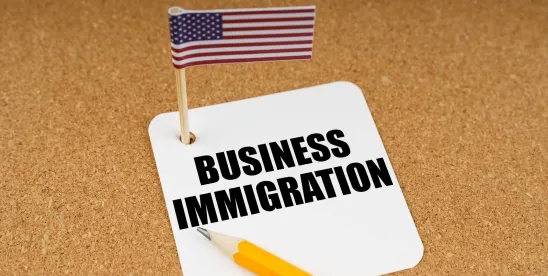Immediately after assuming office on Jan. 20, 2025, President Donald Trump began issuing numerous executive orders. While they may not immediately impact business immigration, many of them presage changes in the business immigration landscape. The following is an analysis of several of these executive orders from that perspective:
- Protecting the United States from Foreign Terrorists and Other National Security and Public Safety Threats. This executive order largely reiterates Trump’s Proclamation 9645, Enhancing Vetting Capabilities and Processes for Detecting Attempted Entry Into the United States by Terrorists or Other Public-Safety Threats, an executive order from his previous term. It tasks various government agencies with reviewing all visa programs to prevent foreign nation-states or other hostile actors from hurting the United States. This order will most likely result in an increase in scrutiny of visa applications and an increase in processing times across the board for all business immigration. We can expect an increase in the number of visa applications subject to administrative processing. These effects may discourage business immigration as business realities clash with system slowdowns.
- America First Trade Policy. This executive order largely reiterates Trump’s Executive Order 13788, Buy American and Hire American (BAHA), from his previous term. The U.S. Trade Representative has been directed to review the implementation of trade agreements to ensure they favor domestic workers and manufacturers, consistent with the principles of that prior executive order. This may lead to a tightening of the labor market, as companies could be discouraged from hiring available foreign national candidates for positions. This could lead to an immigrant brain-drain as highly skilled immigrants trained at U.S. universities and institutions potentially immigrate to countries such as Canada. The USTR’s review may also affect treaty-based visas, such as the TN, E-1, E-2, and H-1B1 visas. Trump also issued America First Policy Directive to the Secretary of State, which may result in increased scrutiny of employment-based visa applications, as BAHA did under Trump’s previous term.
- Guaranteeing the States Protection Against Invasion. This executive order characterizes migration at the southern border as an “invasion” and imposes vetting requirements on those immigrating to the United States. The likely impact is to create enhanced medical and security requirements for immigrants entering the U.S. While this executive order is drafted with the southern border in focus, Customs and Border Protection and the Department of Homeland Security will likely impose additional restrictions on business immigration as well, potentially creating travel disruptions due to inconsistent experiences at points of entry.
- Designating Cartels and Other Organizations as Foreign Terrorist Organizations and Specially Designated Global Terrorists. The designation of criminal organizations in the United States and Central America may portend a crackdown on and enhanced vetting of immigrants, including business immigrants, from areas where these organizations operate. This could cause slowdowns in business immigration across the southern border with Mexico.
- Protecting the American People Against Invasion. This executive order expands expedited removal and revokes humanitarian parole programs created by the prior administration. Individuals who have secured status under those programs will be unable to renew work permits. It may also result in the return of “public charge” policies, which previously resulted in a slowdown for business immigrants seeking lawful permanent residency status. Furthermore, increased scrutiny and interior enforcement may lead businesses to forego hiring immigrant workers.
- Protecting the Meaning and Value of American Citizenship. This executive order seeks to re-interpret the Constitution’s guarantee of citizenship for those born within the United States territory and who are subject to the jurisdiction of the United States. Notably, this executive order attempts to remove the grant of citizenship to certain business immigrants’ children born in the United States. Lawsuits have been filed challenging the impact of this executive order. This action may lead to increased difficulties for companies in recruiting and retaining foreign workers.
Conclusion
While these orders do not have an immediate impact on business immigration, they will likely cause an increase in administrative costs for companies with foreign workers and create retention challenges for companies. This may lead to an immigrant brain-drain, as highly skilled professionals, some of whom have been trained and educated in the United States, potentially seek to leave the country.




 />i
/>i

